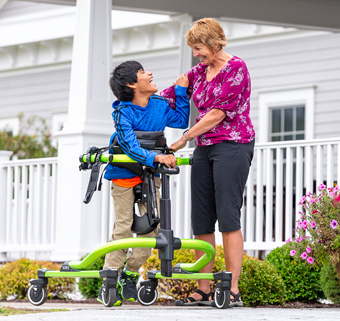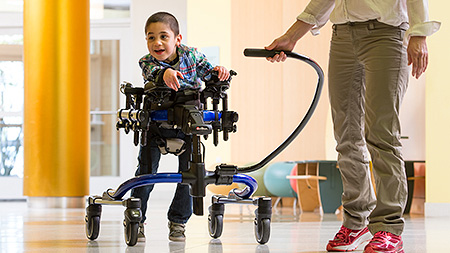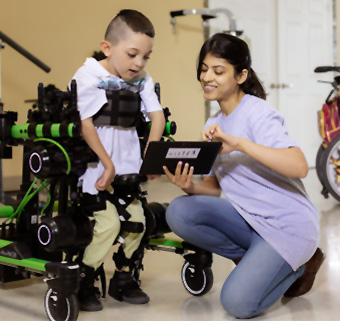Evidence Update: Early Intervention with Treadmill Training
| August 2016 Young children with disabilities respond well to early therapeutic intervention. Literature regarding cortical plasticity in the developing brain points to encouraging therapy results as well. Not surprisingly then, initial research on treadmill training in this population is positive, indicating quicker and more competent acquisition of gait skills.
Young children with disabilities respond well to early therapeutic intervention. Literature regarding cortical plasticity in the developing brain points to encouraging therapy results as well. Not surprisingly then, initial research on treadmill training in this population is positive, indicating quicker and more competent acquisition of gait skills.
However, for children, access to treadmills and a limited number of therapy sessions are barriers to the full benefit of this potentially successful intervention. In response, staff and students in the DPT program at Cal State University at Sacramento established the Supported Treadmill Exercise Program at Sacramento State-Easter Seals (called STEPS for short), a pilot program providing group-based therapy intervention to children with neurodevelopmental disabilities through free access to pediatric treadmills. The goal of the (STEPS) program was to offer a family-centered and fun adjunct to a child’s existing physical therapy sessions in order to provide both ideal intervention time and dosage for best gait outcome. The intervention was provided bi-weekly for 14 weeks and treadmill settings were individualized.
Pediatric Supported Treadmill Training Results
Data from the STEPS trial was systematically collected over two semesters and retroactively analyzed. There were statistically significant improvements noted in standing and walking on completion of the program as well as increased independence in gait (meaning less reliance on assistive devices). The researchers also noted the length of the treadmill sessions and the speed of the treadmills increased -good indicators of a successful outcome. Additionally the children appeared to be enjoying themselves through interaction with the other children, sharing toys and occasional words of encouragement.
Certainly these results are favorable and present a possible solution towards achieving good outcomes in early intervention gait training despite limited resources. But as the sample size in the study is small (n=12), more research is undoubtedly warranted.
Reference
Mattern-Baxter K. Effects of a Group-Based Treadmill Program on Children With Neurodevelomental Impairment Who Are Not Yet Ambulating. Pediatr Phys Ther. 2016;28:312-19.




